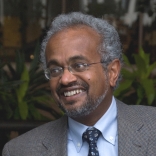More than half the land in the West Bank, much of it agricultural and resource rich, is inaccessible to Palestinians. The first comprehensive study of the potential impact of this ‘restricted land’ sets the current loss to the Palestinian economy at about US$3.4 billion. Area C constitutes 61 percent of the West Bank and is the only contiguous land connecting 227 smaller separate and heavily residential areas. Furthermore, this is a very resource rich area.
The 1993 Oslo Peace Accords stipulated that Area C be gradually transferred to the Palestinian Authority (PA) by 1997. This transfer has never taken place. With growth of approximately six percent annually needed to absorb new entrants to the labor market, let alone making a dent in the soaring rate of youth unemployment, urgent attention is needed to find ways to grow the economy and create jobs. A vital economy is essential for citizen well-being, social stability and building confidence to underpin the challenging political negotiations. However, the Palestinian economy, which currently relies on donor financed consumption and suffers from ongoing stagnation of the private sector, is unsustainable. The report estimates that if businesses and farms were permitted to develop in Area C, this would add as much as 35 percent to the Palestinian GDP. Freeing economic activity in Area C would have a particularly high impact on the development of businesses in agriculture and Dead Sea minerals exploitation, stone mining and quarrying, construction, tourism, and telecommunications. Other sectors would be able to benefit from improvements in the quality and cost of infrastructure and increased demand for different goods and services. The anticipated increase in economic activity would greatly improve the PA’s fiscal position. It is estimated that government revenues would increase by US$ 800 million, which would cut the fiscal deficit by half, hence reduce the need for donor support, and reduce unemployment and poverty rates.


